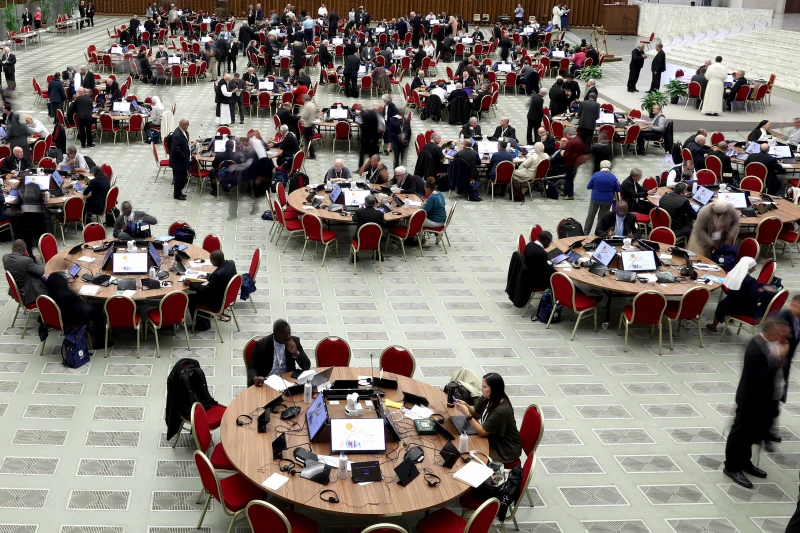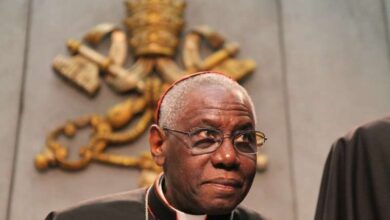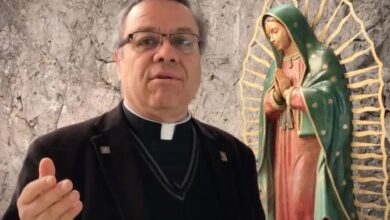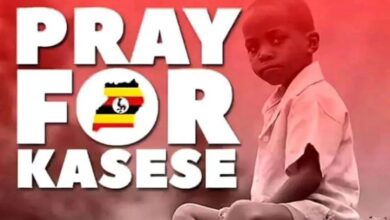Women deacons off the table? Synod delegate claims ‘some women sense a call to priesthood’

 Delegates attend a session of the 16th General Assembly of the Synod of Bishops at the Paul VI Hall on Oct. 5, 2024, in Vatican City. / Credit: Franco Origlia/Getty Images
Delegates attend a session of the 16th General Assembly of the Synod of Bishops at the Paul VI Hall on Oct. 5, 2024, in Vatican City. / Credit: Franco Origlia/Getty Images Vatican City, Oct 7, 2024 / 13:45 pm (CNA).
While “women deacons” are not formally up for discussion at the Synod on Synodality assembly this month, the official Vatican press conference for the synod on Monday showcased a female delegate who spoke about women experiencing “a call to priesthood.”
Synod delegate Sister Mary Theresa Barron, OLA, said that while we tend to look at the topic of women deacons from the perspective of “can women or can they not be ordained in the Church today?” — she believes that the question should also be asked in another way.
“I think we have to look at the question very much from … the Spirit. ‘Is the Spirit calling women?’ Because some women do sense a call to priesthood or diaconate,” she said on Oct. 7.
Barron currently serves as the president of the International Union of Superiors General (UISG), a Catholic organization representing 600,000 religious sisters from 80 countries. She said that “even if at the moment we may not be looking at ordained ministry” for women, she is asking to continue the discussion.
“I think we have to look at broader than just can or can we not from a theological or a canonical point of view, but in terms of the spirit calling to ministry today and in terms … of the needs of mission today,” Barron said.
The sister spoke in response to a question from a female Catholic journalist who asked her to describe ways that women can “take on meaningful leadership and governance roles that don’t necessarily have to do with ordination.”
“I think one of the calls from this synod is to share the possibilities that are open to women for governance, leadership roles within the Church, and there are many good practices from all around the world,” she said. “But we as Catholics are very ignorant of the possibilities that are there.”
As a synod delegate, Barron will have the opportunity to meet with the synod study group that is focused on the subject of women deacons on Oct. 18 to provide her input for them to consider on this topic.
Archbishop Gintaras Grušas, another synod delegate who spoke at the press conference, pointed out that if any Catholics around the world would also like to submit their input to any of the 10 study groups established by the pope, they can send their contributions, observations, and proposals to the General Secretariat of the Synod, who has promised to collect and pass on such materials to the groups concerned.
After hearing Barron’s comments, Cardinal Oswald Gracias, the archbishop of Bombay and a member of the Council of Cardinals established to advise Pope Francis, intervened to add that the conversation on the women’s diaconate “has been taken off and given to part of a study group which is studying theological questions.”
“So it will not be discussed at the synod,” Gracias underlined at the synod press conference.
“I may mention here also that I am a member of the Council of Cardinals, and for the last three meetings which we’ve had with the Holy Father, the Council of Cardinals, there’s been one session devoted entirely to the role of women in the Church — theological concerns, pastoral concerns, canonical concerns,” Gracias said.
“So it’s a matter of great importance, concern. And the Holy Father has personally taken an interest in this,” the cardinal added.
The possibility of allowing Catholic women to become permanent deacons has been a persistent issue in Francis’ pontificate. And while the pope has on multiple occasions indicated his willingness to study the issue, especially the historic figure of the deaconess in the early Church, he has also given a firm response that “deacons with holy orders” is not a possibility for women.
“Women are of great service as women, not as ministers, as ministers in this regard, within the holy orders,” he told CBS News anchor Norah O’Donnell during an appearance on the program “60 Minutes” in May.
Though women’s admission to ministries such as the diaconate was one of the big topics at the monthlong synod assembly last year, organizers have said the issue is now in the hands of experts after Pope Francis created a commission in the Vatican’s doctrine office to study the question at the request of 2023 synod delegates.
Instead synod delegates in the 2024 assembly have been asked to discuss less controversial proposals, including expanding the role of women in diocesan leadership.
Grušas, a Lithuanian-American who is participating in the synod as the president of the Council of the Bishops’ Conferences of Europe, noted that there were comments in the synod hall on how what was said in the first part of the section on women in the Instrumentum Laboris, or working document guiding the synod discussions, “basically all applies to laymen as well.”
“There were comments also on the fact that the charisms of the vocations of lay Christians in families, in the roles that they are currently doing — it could be in hospitals, it could be in schools — has to be valued as well,” he said.
“The role of women and men, wherever they are working in the Church, must be correctly valued. And one or another part of the discourse should not skew that vocational call,” he added.





